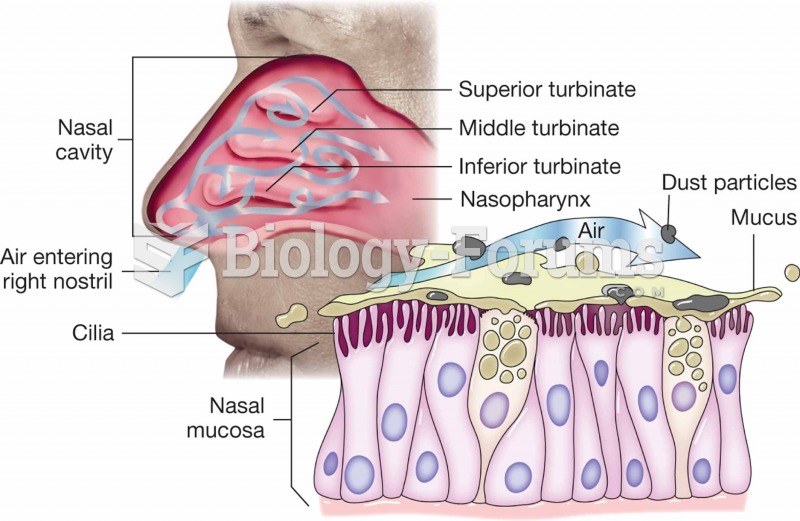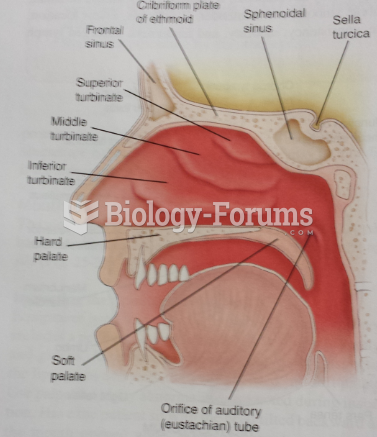|
|
|
ACTH levels are normally highest in the early morning (between 6 and 8 A.M.) and lowest in the evening (between 6 and 11 P.M.). Therefore, a doctor who suspects abnormal levels looks for low ACTH in the morning and high ACTH in the evening.
When blood is exposed to air, it clots. Heparin allows the blood to come in direct contact with air without clotting.
According to the FDA, adverse drug events harmed or killed approximately 1,200,000 people in the United States in the year 2015.
The heart is located in the center of the chest, with part of it tipped slightly so that it taps against the left side of the chest.
More than 30% of American adults, and about 12% of children utilize health care approaches that were developed outside of conventional medicine.






